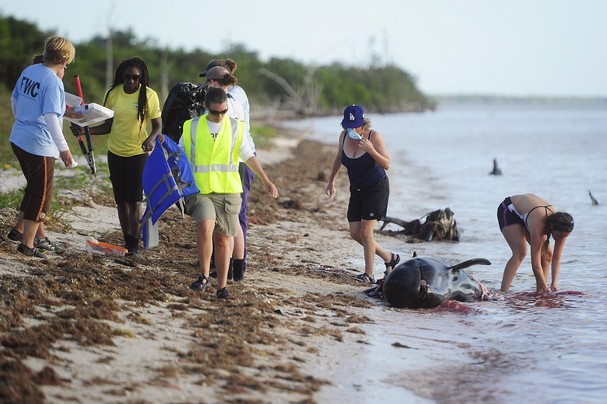 Photo Courtesy of Photo by COREY PERRINE
Photo Courtesy of Photo by COREY PERRINE
It is not uncommon for mass strandings of pilot whales in Florida. As people attempt to rescue the dozens of short-finned pilot whales stranded in shallow water off Florida’s Everglades National Park, the outlook of survival is looking slim. It “does not look good,” wildlife officials said Wednesday.
Rescuers are officials from NOAA, the Marine Mammal Conservatory and the Marine Animal Rescue Society, Mase said.
As reported by CNN, “We want to set the expectations low” that the 41 remaining stranded whales can be saved, said Blair Mase, a marine mammal scientist with the National Oceanic and Atmospheric Administration.
Wildlife officials are unsure how long the pod of whales have been stranded.
Rescuers have been using five boats to create a blockade of sorts between the whales and the beach as part of the effort to keep them from beaching and simultaneously encouraging them to make their way back to the Gulf of Mexico, Friar said.
So, why do whales strand themselves? According to About.com: There are many theories about why whales and dolphins sometimes swim into shallow water and end up stranding themselves on beaches in various parts of the world.
Some scientists have theorized that a single whale or dolphin may strand itself due to illness or injury, swimming in close to shore to take refuge in shallow water and getting trapped by the changing tide. Because whales are highly social creatures that travel in communities called pods, some mass strandings may occur when healthy whales refuse to abandon a sick or injured pod member and follow them into shallow water.
